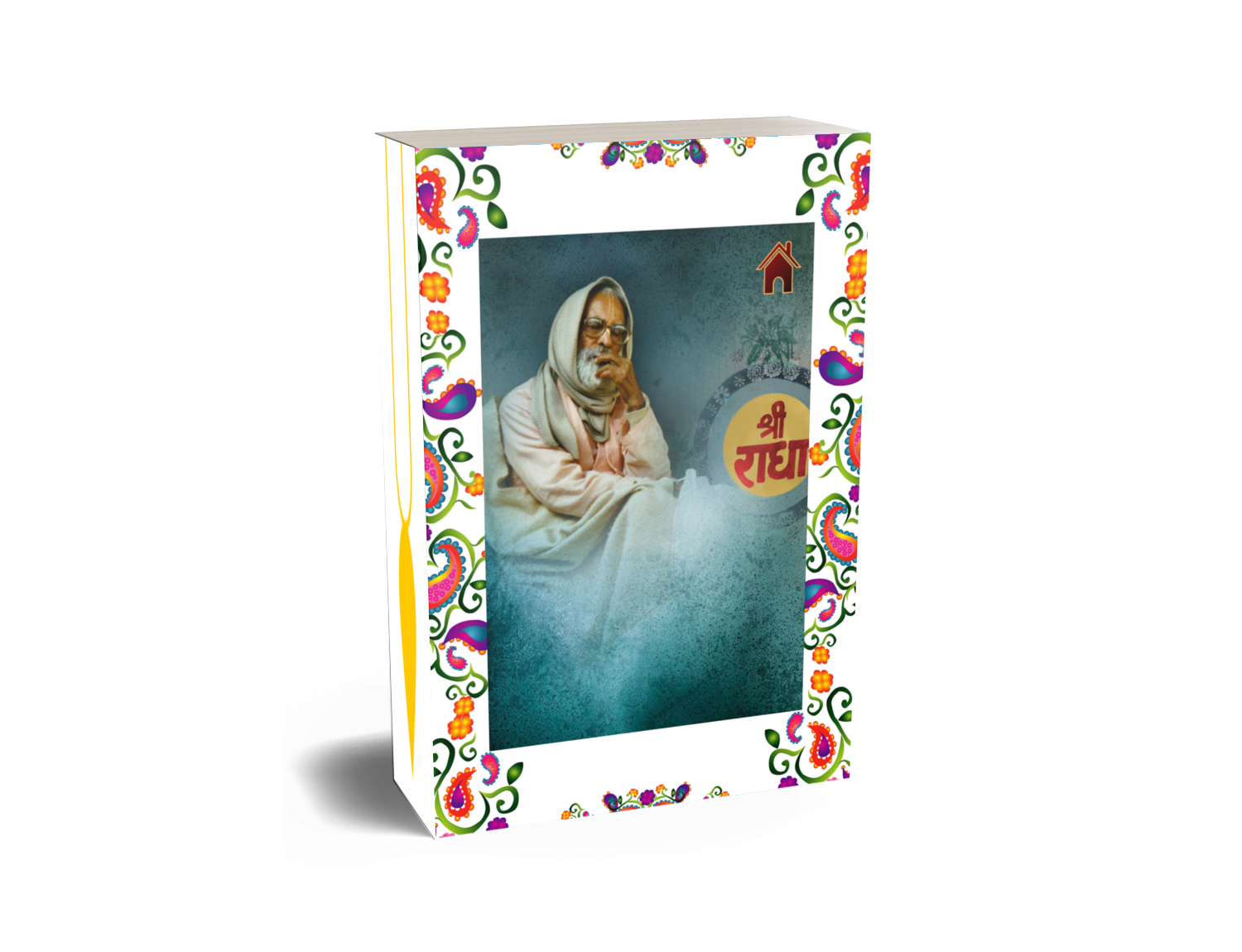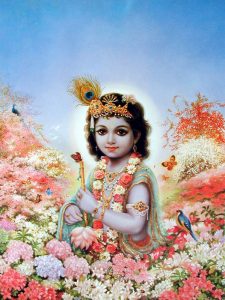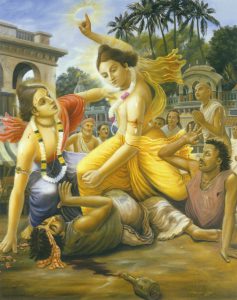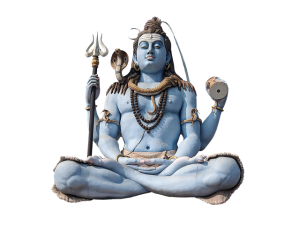

The following is an excerpt from the book Volcanic energy by Śrīla Bhakti Vijñāna Bhāratī Mahārāja
Once, a maṭha in-charge ordered another maṭha-vāsī (resident of the maṭha) to do something. That maṭha-vāsī  was senior to him not only by age, but also in years staying in the maṭha. Seeing this, Guru Mahārāja removed the in-charge from his post and sent him to another maṭha, where he no longer retained a managerial position.
was senior to him not only by age, but also in years staying in the maṭha. Seeing this, Guru Mahārāja removed the in-charge from his post and sent him to another maṭha, where he no longer retained a managerial position.
Guru Mahārāja said, “Śrīman Mahāprabhu never tolerated any transgression in following Vaiṣṇava etiquette. Does being a maṭha in-charge imply that one has a license to circumvent the etiquette of offering due respect to senior devotees? I cannot tolerate seeing him committing offences by which he will be led to his doom. Does a father allow his son to jump into fire? Never!”
Guru Mahārāja would always greatly stress the importance of following proper Vaiṣṇava etiquette.

The following is an excerpt from a Darśana with Śrīla Bhaktivedānta Nārāyaṇa Mahārāja in San Francisco, on June 17, 2007, published in Walking with a Saint – Morning Walks and Conversations 2007
Śyāmarāṇī dāsī: In this morning’s darśana you said we should follow varṇāśrama-dharma. You said we should  serve our mother and father and brothers.
serve our mother and father and brothers.
Śrīla Bhaktivedānta Nārāyaṇa Mahārāja: Not only on Father’s Day, but every day.
Śyāmarāṇī dāsī: What if we have a non-devotee mother, father, and brother?
Śrīla Bhaktivedānta Nārāyaṇa Mahārāja: Those who are gṛhastha (householders) should do so, and those who are renounced, having given up the world, should serve their holy master.
Śyāmarāṇī dāsī: A householder should serve even their non-devotee mother and father?
Śrīla Bhaktivedānta Nārāyaṇa Mahārāja: Yes, they should serve their mother, father, and brothers – whether their parents are devotees or non-devotees – otherwise they will have to go to hell. Everyone who is not a pure devotee has debts to others in this world. When my father used to come to Mathurā, I would take his foot-dust on my head.
Śrīpāda Mādhava Mahārāja: His father was a devotee.
Śrīla Bhaktivedānta Nārāyaṇa Mahārāja: Even though I am a sannyāsī and he was a gṛhastha, I did so. He was my first guru. He taught me Mahābhārata, Ramāyāna, and other scriptures.

The following are excerpts from the book My Beloved Masters by Śrīla Bhakti Vijñāna Bhāratī Mahārāja
Whenever Śrīla Purī Gosvāmī Mahārāja was absorbed in service, he would often send devotees with spiritual  questions to me, so that I could resolve their issues. This especially happened in his later years. He would tell such devotees, “My memory is weakening day by day. Please approach Śrīpāda Bhāratī Mahārāja. He will be able to answer any questions you may have.”
questions to me, so that I could resolve their issues. This especially happened in his later years. He would tell such devotees, “My memory is weakening day by day. Please approach Śrīpāda Bhāratī Mahārāja. He will be able to answer any questions you may have.”
We often see that many so-called gurus view their disciples as their own property and forbid them from seeking the guidance of qualified Vaiṣṇavas. But Śrīla Purī Gosvāmī Mahārāja never felt his disciples belonged to him. Rather, he firmly believed they belonged to Bhagavān and his gurupāda-padma, Śrīla Prabhupāda. Only those endowed with anyābhilāṣa-śūnyatā (the quality of being devoid of desires other than pleasing Śrī Kṛṣṇa) and the prerequisites for performing hari-kīrtana are able to hold such a view and non-duplicitously send their disciples and followers to others for instruction.
Once when I was at Śrī Caitanya Gauḍīya Maṭha in Jagannātha Purī, the vice-principal of Khadīrpura University, Dr Nārāyaṇa Bandhopādhyāya of Behālā, Kolkata, came to stay in the maṭha with his wife for the month of Kārtika. I noticed that although his wife would attend hari-kathā daily, he never did.
One day during hari-kathā, I was explaining the four main qualities of Bhagavān: He is vadānya (munificent), kṛtajña (aware of all activities), bhakta-vatsala (affectionate toward His devotees) and samarthā (capable of achieving everything). As I explained the meaning of the word kṛtajña—‘one who knows (jña) the activities (kṛtya) everyone performs’— Dr Nārāyaṇa Bandhopādhyāya happened to walk by. This explanation piqued his interest, as he had never before heard it described in this way. He remained listening in the back of the hall.
After I finished my lecture, he approached me and said, “Your hari-kathā was quite touching. I would like to hear hari-kathā from a devotee like you every day. Please accept me as your disciple and give me shelter.”
“I do not give mantra-dīkṣā to anyone,” I replied. “You may accept dīkṣā from a pure devotee and thereby make your life successful.”
After performing the month-long kārtika-vrata, Dr Nārāyaṇa Bandhopādhyāya and his wife returned to Kolkata. There, in Behālā, they would daily visit Śrī Śrīmad Bhakti Kumuda Santa Gosvāmī Mahārāja’s maṭha, Śrī Caitanya Āśrama, to hear hari-kathā. By hearing from Śrīla Santa Gosvāmī Mahārāja, they gradually became familiar with the tenets of Gauḍīya Vaiṣṇavism. As they became increasingly convinced of the need to accept a guru, they went to Śrī Caitanya Gauḍīya Maṭha in Kolkata with the desire to accept mantra-dīkṣā from Śrī Śrīmad Bhakti Pramoda Purī Gosvāmī Mahārāja.
When they introduced themselves to Śrīla Purī Gosvāmī Mahārāja, Śrīla Mahārāja asked, “Why haven’t you requested Śrī Santa Mahārāja for dīkṣā in Behālā? Why have you come here instead?”
Dr Nārāyaṇa Bandhopādhyāya explained, “Mahārāja-jī, we would like to accept dīkṣā from a brāhmaṇa-born Vaiṣṇava.”
“This concept is improper,” Śrīla Purī Gosvāmī Mahārāja said. “Brāhmaṇatā, the quality of being a brāhmaṇa, is  intrinsically present in vaiṣṇavatā; Vaiṣṇavas subsume all the qualities of brāhmaṇas. They are naturally and firmly established in ātma-dharma, the principle of identifying oneself as a soul. It is offensive to identify or distinguish them based on śarīra-dharma, on bodily considerations like caste and race.”
intrinsically present in vaiṣṇavatā; Vaiṣṇavas subsume all the qualities of brāhmaṇas. They are naturally and firmly established in ātma-dharma, the principle of identifying oneself as a soul. It is offensive to identify or distinguish them based on śarīra-dharma, on bodily considerations like caste and race.”
He continued, “You are mistaken in considering Śrī Santa Mahārāja to be a non-brāhmaṇa. An intelligent person will never leave the nearby Gaṅgā to bathe in a faraway lake. You should therefore make your lives successful by accepting Śrī Santa Mahārāja’s shelter. Moreover, the scriptures declare that one must atone for the offence of distinguishing a Vaiṣṇava based on śarīra-dharma, or bodily considerations, by immediately taking shelter of that Vaiṣṇava.”
arcye viṣṇau śilā-dhīr guruṣu nara-matir vaiṣṇave jāti-buddhir
viṣṇor vā vaiṣṇavānāṁ kali-mala-mathane pāda-tīrthe ’mbu-buddhiḥ
śrī-viṣṇor nāmni mantre sakala-kaluṣa-he śabda-sāmānya-buddhir
viṣṇau sarveśvareśe tad-itara-sama-dhīr yasya vā nārakī saḥ
Padma Purāṇa
A person is bound for hell who considers the deity to be made out of wood, stone or any alloy; who considers the guru, who is an eternal devotee of Bhagavān, to be an ordinary human who is subject to death; who considers a Vaiṣṇava to belong to a particular caste or creed; who considers caraṇāmṛta, water which has washed the feet of Śrī Viṣṇu and the Vaiṣṇavas, to be ordinary water when in reality it destroys the evils of the age of Kali; who considers the holy name and the mantra of Śrī Viṣṇu, which destroy all types of sinful reaction, to be ordinary material sound vibrations; and who considers the supreme controller Śrī Viṣṇu to be equal to the many demigods.
As per the advice of Śrīla Purī Gosvāmī Mahārāja, Dr Nārāyaṇa Bandhopādhyāya and his wife took shelter at the lotus feet of Śrīla Santa Gosvāmī Mahārāja.
The above incident prominently demonstrates Śrīla Purī Gosvāmī Mahārāja’s sincere vaiṣṇava humility, his ardent desire to bring about the welfare of those who approached him, as well as the deep faith and non-envious affection he possessed for his junior godbrother Śrīla Santa Gosvāmī Mahārāja.

The following is an excerpt from a class given by Śrīla Bhaktivedānta Svāmī Prabhupāda in Māyāpura, India, on April 6, 1975 (https://vedabase.io)
So Advaita Ācārya is the typical example how to become ācārya. All are our ācāryas: śrī-kṛṣṇa-caitanya prabhu- nityānanda, śrī-advaita gadādhara śrīvāsādi-gaura-bhakta-vṛnda. All of them are ācāryas because they are following the ācārya, supreme ācārya, Caitanya Mahāprabhu. Therefore they are ācārya. Evaṁ paramparā-prāptam imaṁ rājarṣayo viduḥ [Bg. 4.2]. So we have to follow the ācārya. Then, when we are completely, cent per cent follower of ācārya, then you can also act as ācārya. This is the process. Don’t become premature ācārya. First of all follow the orders of ācārya, and you become mature. Then it is better to become ācārya. Because we are interested in preparing ācārya, but the etiquette is, at least for the period the guru is present, one should not become ācārya. Even if he is complete he should not, because the etiquette is, if somebody comes for becoming initiated, it is the duty of such person to bring that prospective candidate to his ācārya. Not that “Now people are coming to me, so I can become ācārya.” That is avamanya. Nāvamanyeta karhicit. Don’t transgress this etiquette. Nāvamanyeta. That will be falldown.
nityānanda, śrī-advaita gadādhara śrīvāsādi-gaura-bhakta-vṛnda. All of them are ācāryas because they are following the ācārya, supreme ācārya, Caitanya Mahāprabhu. Therefore they are ācārya. Evaṁ paramparā-prāptam imaṁ rājarṣayo viduḥ [Bg. 4.2]. So we have to follow the ācārya. Then, when we are completely, cent per cent follower of ācārya, then you can also act as ācārya. This is the process. Don’t become premature ācārya. First of all follow the orders of ācārya, and you become mature. Then it is better to become ācārya. Because we are interested in preparing ācārya, but the etiquette is, at least for the period the guru is present, one should not become ācārya. Even if he is complete he should not, because the etiquette is, if somebody comes for becoming initiated, it is the duty of such person to bring that prospective candidate to his ācārya. Not that “Now people are coming to me, so I can become ācārya.” That is avamanya. Nāvamanyeta karhicit. Don’t transgress this etiquette. Nāvamanyeta. That will be falldown.
Just like during the lifetime of our Guru Mahārāja, all our Godbrothers now who are acting as ācārya, they did not do so. That is not etiquette. Ācāryaṁ māṁ vijānīyāt na avaman… That is insult. So if you insult your ācārya, then you are finished. Yasya prasādād bhagavat-prasādo yasya aprasādāt na gatiḥ kuto ‘pi—finished. If you displease your ācārya, then you are finished. Therefore it is said, Caitanya Mahāprabhu says to all the ācāryas… Nityānanda Prabhu, Advaita Prabhu and śrīvāsādi-gaura-bhakta-vṛnda, they are all carriers of orders of Śrī Caitanya Mahāprabhu. So try to follow the path of ācārya process. Then life will be successful.

The following are excerpts from the book Viśuddha Caitanya-vāṇī by Śrīla Bhakti Vijñāna Bhāratī Mahārāja
During the festival in Khaḍagapura, I stayed in the room next to pūjyapāda Vāmana Gosvāmī Mahārāja. When  we talked, we discussed only the teachings and conduct of Śrīla Prabhupāda. He told me, “I have seen three generations of devotees in my life and I am astonished to see how diluted the devotees’ implementation of Śrīla Prabhupāda’s teachings and conduct has become. I want to say one thing to you, but please take it as advice rather than an instruction, because I am not so arrogant as to think I am qualified to instruct anyone: ‘dekhibe, śunibe, bolibe nā—observe and hear, but do not speak.’ By following this, you will stay out of trouble.” He faultlessly observed this ideal in his own life and maintained perfect vaiṣṇava-maryādā, or etiquette befitting a Vaiṣṇava.
we talked, we discussed only the teachings and conduct of Śrīla Prabhupāda. He told me, “I have seen three generations of devotees in my life and I am astonished to see how diluted the devotees’ implementation of Śrīla Prabhupāda’s teachings and conduct has become. I want to say one thing to you, but please take it as advice rather than an instruction, because I am not so arrogant as to think I am qualified to instruct anyone: ‘dekhibe, śunibe, bolibe nā—observe and hear, but do not speak.’ By following this, you will stay out of trouble.” He faultlessly observed this ideal in his own life and maintained perfect vaiṣṇava-maryādā, or etiquette befitting a Vaiṣṇava.

The following is an excerpt from Śrīmad-Bhāgavatam 6.5.44, purport by Śrīla Bhaktivedānta Svāmī Prabhupāda (https://vedabase.io)
Now, it may be asked why Nārada Muni stayed in the presence of Prajāpati Dakṣa and tolerated all his  accusations and curses. Was that for Dakṣa’s deliverance? The answer is yes. Śrīla Viśvanātha Cakravartī Ṭhākura says that after being insulted by Prajāpati Dakṣa, Nārada Muni should have left immediately, but he purposely stayed to hear all Dakṣa’s strong words so that Dakṣa might be relieved of his anger. Prajāpati Dakṣa was not an ordinary man; he had accumulated the results of many pious activities. Therefore Nārada Muni expected that after delivering his curse, Dakṣa, satisfied and freed from anger, would repent his misbehaviour and thus get a chance to become a Vaiṣṇava and be delivered. When Jagāi and Mādhāi offended Lord Nityānanda, Lord Nityānanda stood tolerantly, and therefore both brothers fell at His lotus feet and repented. Consequently they later became perfect Vaiṣṇavas.
accusations and curses. Was that for Dakṣa’s deliverance? The answer is yes. Śrīla Viśvanātha Cakravartī Ṭhākura says that after being insulted by Prajāpati Dakṣa, Nārada Muni should have left immediately, but he purposely stayed to hear all Dakṣa’s strong words so that Dakṣa might be relieved of his anger. Prajāpati Dakṣa was not an ordinary man; he had accumulated the results of many pious activities. Therefore Nārada Muni expected that after delivering his curse, Dakṣa, satisfied and freed from anger, would repent his misbehaviour and thus get a chance to become a Vaiṣṇava and be delivered. When Jagāi and Mādhāi offended Lord Nityānanda, Lord Nityānanda stood tolerantly, and therefore both brothers fell at His lotus feet and repented. Consequently they later became perfect Vaiṣṇavas.

The following is an excerpt from Śrī Hari-kathāmṛta, Volume One by Śrīla Bhaktivedānta Nārāyaṇa Mahārāja
The guru is karuṇā-sindhu, an ocean of mercy. This is also described in the first verse of Gurvāṣṭakam: saṁsāra dāvānala līdha-loka, trāṇāya kāruṇya-ghanāghanatvam. The guru is the embodiment of Bhagavān’s mercy. The forest fire of material existence is blazing and its flames are jumping high. We are being consumed by it and we have very little strength left—this is our condition. We have even lost our sense. A pig is unaware that it lives in such filth, searching in gutters for stool, but we can see its condition. In the same way, we have become so accustomed to our position within material existence that we consider it to be giving us great happiness. The spiritual master is he who makes us realise our true position. Gurudeva is an ocean of mercy— why? If we become a little aggravated with someone, we leave that person. First we abandon them physically by no longer keeping their company, and then mentally by no longer even thinking about them. But Gurudeva is not like this. If a devotee has truly taken shelter of Gurudeva’s feet, sincerely feeling that “I belong exclusively to him,” then even if that devotee deviates from the path a thousand times, Gurudeva will never abandon him. The guru also never accepts offence. If someone constantly commits some special offence to him, then perhaps the spiritual master will abandon them, but generally he will not.
In this regard there is a story in Tulasī dāsa’s Ramāyaṇa. There was a śudra who worshipped Śaṅkara, but his  spiritual master was a Vaiṣṇava who chanted rāma-nāma. The guru instructed this śudra to also worship Rāma but the śudra’s primary interest was worshipping Śaṅkara. One day the guru said, “Śaṅkara himself worships Rāma, so why don’t you worship Rāma?” The śudra replied, “Oh, you are inimical to Śaṅkara?” All devotees of Śiva say this. If you tell them that the worship of Rāma is superior to the worship of Śiva, they accuse you of being an offender. But this is not correct. So this śudra said, “To promote the worship of Rāma you blaspheme Śiva?” He became very angry and began insulting his spiritual master. Then Śaṅkara himself appeared from the mūrti that was nearby and cursed the śudra, “You must reside in hell for millions of births.”
spiritual master was a Vaiṣṇava who chanted rāma-nāma. The guru instructed this śudra to also worship Rāma but the śudra’s primary interest was worshipping Śaṅkara. One day the guru said, “Śaṅkara himself worships Rāma, so why don’t you worship Rāma?” The śudra replied, “Oh, you are inimical to Śaṅkara?” All devotees of Śiva say this. If you tell them that the worship of Rāma is superior to the worship of Śiva, they accuse you of being an offender. But this is not correct. So this śudra said, “To promote the worship of Rāma you blaspheme Śiva?” He became very angry and began insulting his spiritual master. Then Śaṅkara himself appeared from the mūrti that was nearby and cursed the śudra, “You must reside in hell for millions of births.”
Hearing this, the guru offered many prayers and pleased Śiva, saying, “Lord, please be kind to him. No matter how fallen your devotee may be, he still belongs solely to you. Be merciful.”
Śaṅkara then asked, “What do you desire?”
The guru replied, “That you please forgive him.”
Śaṅkara replied, “I have said that he must take birth in hell for millions of births, yet now I give my blessing that this curse will be completed very quickly. He will take birth and then die immediately afterwards until the curse is fulfilled. In this way it will take no time at all.”
And it happened this way, by the spiritual master’s having prayed to Śiva. Soon afterwards the śudra took another human birth, then he took birth as Kākabhuśuṇḍi and became a devotee of the Lord. This is the mercy of the spiritual master.

The following is an excerpt from a Morning Walk with Śrīla Bhaktivedānta Svāmī Prabhupāda in Māyāpura, India, on February 6, 1976 (https://vedabase.io)
Tamāla Kṛṣṇa: Burnt off. [break] What is the way to draw the line between the following three things: blasphemy,  fault-finding and calling a spade a spade?
fault-finding and calling a spade a spade?
Prabhupāda: A spade a spade… Just like I am saying that “What you are? You are small fig only.” That is reality. And what is the other?
Tamāla Kṛṣṇa: The other is fault-finding and…
Prabhupāda: Fault-finding, that is another fault, that… Vraṇam icchanti, makṣikā vraṇam icchanti, madhum icchanti[?]. Just like the flies, they are finding out where are sores, and the bees, they are finding out where there is honey. So two animals, they have got two businesses: fault-finding and collecting good things. These are two… Just like creatures. They are two classes. Similarly, there are many rascals who are simply fault-finding.
Tamāla Kṛṣṇa: And blasphemy?
Prabhupāda: Blasphemy means you have good qualities, but still, I am defaming you.
Tamāla Kṛṣṇa: So the saintly person tends to overlook the bad qualities and see the good ones.
Prabhupāda: Yes.

The following is an excerpt from an Afternoon Darśana with Śrīla Gaura Govinda Svāmī Mahārāja in San Diego, California, on June 23, 1992, published in Kṛṣṇa Kathāmṛta Bindu Issue 82 & The Process of Inquiry, Pages 89 to 90 (Gopal Jiu Publications, Bhubaneswar India 1998)
Devotee: It is our responsibility as disciples and grand-disciples of Śrīla Prabhupāda to set a good example. The disciples must be serious as well as the devotees accepting the role of spiritual masters.
Śrīla Gaura Govinda Svāmī Mahārāja: Yes, one who plays the role of guru should be guru in the true sense, not a pretender or a cheater. He must be a real teacher. He should be conscious of his capacity. If I can only  carry one ton, why should I accept a load of two tons? If you take more than you can carry you’ll be crushed, degraded. That is the result of greed. Why develop such greed? One should be conscious of his capacity. “I have no capacity, I cannot deliver a soul, I am not liberated myself, so why shall I accept disciples?” That is only cheating and hypocrisy, nothing else. I am not completely free from anarthas, so how can I make him free? Guru means heavy. It also means heavy responsibility. It is not an easy affair to deliver even one soul from the clutches of māyā, the fort of Durgā. To do so, the guru has to spend gallons and gallons of spiritual blood. This is not child’s play. Also, the disciple must be serious.
carry one ton, why should I accept a load of two tons? If you take more than you can carry you’ll be crushed, degraded. That is the result of greed. Why develop such greed? One should be conscious of his capacity. “I have no capacity, I cannot deliver a soul, I am not liberated myself, so why shall I accept disciples?” That is only cheating and hypocrisy, nothing else. I am not completely free from anarthas, so how can I make him free? Guru means heavy. It also means heavy responsibility. It is not an easy affair to deliver even one soul from the clutches of māyā, the fort of Durgā. To do so, the guru has to spend gallons and gallons of spiritual blood. This is not child’s play. Also, the disciple must be serious.
On the spiritual path there is no question of gauṇa, mundane vote, drawing conclusions based upon the opinions of the masses. Because thousands of people say that Satya Sai is Bhagavān, people accept him as such. This is gaḍḍalikā-srota-nyāya, the logic of the flock of sheep. A flock of sheep is following the lead ewe. If that ewe jumps into a ditch the whole flock will follow. This is going on.
This is a personal matter, not impersonal. If you are serious, if you are crying in your heart, Kṛṣṇa will make arrangement for you. You’ll meet a pure devotee, a bona fide representative of Kṛṣṇa who can give you Kṛṣṇa. The test is that you will feel spontaneous attraction from your heart for that sādhu. Then you’ll understand, “Yes, this is Kṛṣṇa’s arrangement. I was crying for it and now it has spontaneously come.” This is the only test, nothing else.
Devotee: In order to be protected, the disciple should always follow and not deviate from the orders of the spiritual master?
Śrīla Gaura Govinda Svāmī Mahārāja: Yes, don’t deviate. If he deviates he’ll fall down. They commit aparādha, so they fall down. Otherwise, why would they deviate? If you have really developed kṛṣṇa-prema, and you are always absorbed in seeing the all-beautiful form of Kṛṣṇa, how can you be attracted towards the ugly witch māyā? If someone is attracted that means he is not completely free from the clutches of māyā. He has not gotten Kṛṣṇa, so how can he give you Kṛṣṇa? That is my question.
Devotee: Mahārāja, sometimes it is seen that a disciple who is not serious may leave his guru and pursue enjoyment like a karmī. It seems that his deviation is not as dangerous as someone who deviates philosophically.
enjoyment like a karmī. It seems that his deviation is not as dangerous as someone who deviates philosophically.
Śrīla Gaura Govinda Svāmī Mahārāja: Yes, his deviation is more dangerous. A karmī is better. A karmī doesn’t know he is deviating, but for a disciple who has come to this path, who has heard philosophy, who has accepted guru, if he deviates it is definitely more dangerous. If someone is branded a thief then people are cautious, “Yes, he’s a thief.” But a thief in the dress of a sādhu is more dangerous.
Devotee: I am asking these questions because I am concerned.
Śrīla Gaura Govinda Svāmī Mahārāja: No, these are important questions.

The following is an excerpt from an Evening Darśana with Śrīla Gaura Govinda Svāmī Mahārāja in Bhubaneswar, 1990, published in Kṛṣṇa Kathāmṛta Bindu Issue 410 & on www.tvpbooks.com
Devotee: Should we accept someone as an authority if they have material attachments and are not situated on the spiritual platform?
Śrīla Gaura Govinda Svāmī Mahārāja: We accept because we are in a society. Someone may be GBC of some region of the world, so according to the management system he is an authority. But by the spiritual system, unless I am convinced, I cannot accept him as an authority. That is up to me. I have independence. It is my ![]() choice. As far as the management system goes, I accept him because he is GBC. But as far as spiritual things go, unless I am convinced I cannot accept. “Please excuse me.” Acceptance of someone as a spiritual authority should not be forced or compulsory. That is a principle.
choice. As far as the management system goes, I accept him because he is GBC. But as far as spiritual things go, unless I am convinced I cannot accept. “Please excuse me.” Acceptance of someone as a spiritual authority should not be forced or compulsory. That is a principle.
For me to accept someone as a spiritual authority my heart must be convinced, because it is based on the desire of the heart. It is not an external thing. It is internal. Acting in that way is not offensive. I am not disregarding him. He is a Vaiṣṇava, so I offer him obeisances. We pay obeisances to all Vaiṣṇavas, regardless if they are kaniṣṭha, madhyama, or whatever. That is etiquette. But accepting someone as a spiritual master, that is something else.
Image/Art made possible by Pixabay.com & Krishnapath.org








